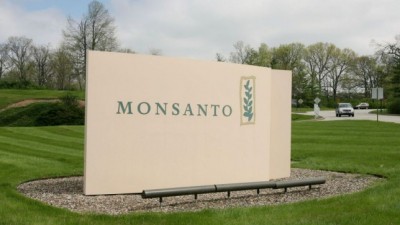Monsanto to Be Put on Trial for “Crimes against Nature and Humanity” at The Hague

The Organic Consumers Association (OCA), IFOAM International Organics, Navdanya, Regeneration International (RI), and Millions Against Monsanto, joined by dozens of global food, farming and environmental justice groups announced today that they will put Monsanto MON (NYSE), a US-based transnational corporation, on trial for crimes against nature and humanity, and ecocide, in The Hague, Netherlands, next year on World Food Day, October 16, 2016.
• PCBs (polychlorinated biphenyl), one of the 12 Persistent Organic Pollutants (POP) that affect human and animal fertility;
• 2,4,5 T (2,4,5-trichlorophenoxyacetic acid), a dioxin-containing component of the defoliant, Agent Orange, which was used by the US Army during the Vietnam War and continues to cause birth defects and cancer;
• Lasso, an herbicide that is now banned in Europe;
• and RoundUp, the most widely used herbicide in the world, and the source of the greatest health and environmental scandal in modern history. This toxic herbicide, designated a probable human carcinogen by the World Health Organization, is used in combination with genetically modified (GM) RoundUp Ready seeds in large-scale monocultures, primarily to produce soybeans, maize and rapeseed for animal feed and biofuels.
Relying on the “Guiding Principles on Business and Human Rights” adopted by the UN in 2011, an international court of lawyers and judges will assess the potential criminal liability of Monsanto for damages inflicted on human health and the environment. The court will also rely on the Rome Statute that created the International Criminal Court in The Hague in 2002, and it will consider whether to reform international criminal law to include crimes against the environment, or ecocide, as a prosecutable criminal offense. The International Criminal Court, established in 2002 in The Hague, has determined that prosecuting ecocide as a criminal offense is the only way to guarantee the rights of humans to a healthy environment and the right of nature to be protected.
The announcement was made at a press conference held in conjunction with the COP21 United Nations Conference on Climate Change, November 30 – December 11, in Paris.
Speaking at the press conference, Ronnie Cummins, international director of the OCA (US) and Via Organica (Mexico), and member of the RI Steering Committee, said:
“The time is long overdue for a global citizens’ tribunal to put Monsanto on trial for crimes against humanity and the environment. We are in Paris this month to address the most serious threat that humans have ever faced in our 100-200,000 year evolution—global warming and climate disruption. Why is there so much carbon dioxide, methane and nitrous oxide in the atmosphere and not enough carbon organic matter in the soil? Corporate agribusiness, industrial forestry, the garbage and sewage industry and agricultural biotechnology have literally killed the climate-stabilizing, carbon-sink capacity of the Earth’s living soil.”
Andre Leu, president of IFOAM and a member of the RI Steering Committee, said:
“Monsanto is able to ignore the human and environmental damage caused by its products, and maintain its devastating activities through a strategy of systemic concealment: by lobbying regulatory agencies and governments, by resorting to lying and corruption, by financing fraudulent scientific studies, by pressuring independent scientists, and by manipulating the press and media. Monsanto’s history reads like a text-book case of impunity, benefiting transnational corporations and their executives, whose activities contribute to climate and biosphere crises and threaten the safety of the planet.”
Marie-Monique Robin, journalist and author of the best-selling documentary (and book by the same name),
“The World According Monsanto,” said: “This International Citizens’ Tribunal is necessary because the defense of the safety of the planet and the conditions of life on Earth is everyone’s concern. Only through a collective resurgence of all living forces will we stop the engine of destruction. That’s why today I am calling on all citizens of the world to participate in this exemplary tribunal.”
Also speaking at the conference were Valerie Cabanes, lawyer and spokesperson for End Ecocide on Earth; Hans Rudolf Herren, president and CEO of the Millennium Institute, president and founder of Biovision, and member of the RI Steering Committee; Arnaud Apoteker, creator of the anti-GMO campaign in France, which became one of the priority campaigns of Greenpeace France, and author of “Fish in Our Strawberries: Our Manipulated Food;” and Olivier De Schutter, co-chair of the International Panel of Experts on Sustainable Food Systems (IPESFood) and former UN Special Rapporteur on the Right to Food.
Full list of founding organizations (so far) here.
Full list of Monsanto Tribunal Foundation organizing members here.
More information will be available at www.monsanto-tribunal.org/, after 2:30 p.m. EU time on December 3, 2015.

